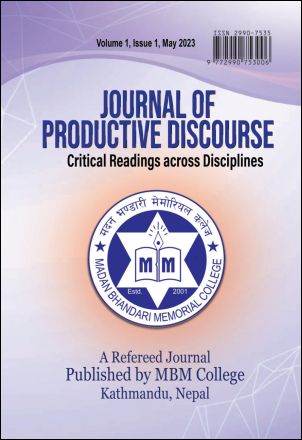Listening to Survivors of Conflict-Related Sexual Violence in Nepal: Would It Ever Happen?
Keywords:
Survivors, Conflict-Related Sexual Violence, Nepal, Women, Peace, Security, National Action Plan, Survivor-centricAbstract
A theory of listening that entails openness, receptivity, attentiveness, and responsiveness shifts the onus for action onto the listener from speaker and undertakes listening not only as a process, but also as a substance. Listening to survivors in the cases of violence goes beyond hearing their experience, and taking seriously the justice interests of survivors as legal and political subjects. However, the survivors of Conflict Related Sexual Violence (CRSVs), caused in Nepal during the decade long armed conflict (1996-2006), have never been listened to for their voices and sufferings. Far from ‘substance’, they have neither been heard nor provided interim relief to which all other categories of survivors of the armed conflict were entitled to. The second National Action Plan on Women, Peace and Security adopted in Nepal in 2022 has opened a possibility to listen to the CRSVs as it has included them officially for the first time. However, in reality they cannot be listened until the stakeholders move beyond tokenism to making their participation effective. It requires capacitating, providing psychosocial support, and assuring response to overcome any possible stigmatisation. The article concludes that listening to CRSVs requires a survivor-centric comprehensive approach, which includes i) work, education and good health to exercise their right to participate; ii) avenues and spaces for effective, full and meaningful participation; iii) skills for effective engagement together with the willingness of the state to open up decision making and a prudent action of all stakeholders on which the survivors can fully trust.
Downloads
Downloads
Published
How to Cite
Issue
Section
License
Copyright (c) 2023 Shiva Datta Bhandari

This work is licensed under a Creative Commons Attribution-NonCommercial 4.0 International License.
This license allows reusers to distribute, remix, adapt, and build upon the material in any medium or format for noncommercial purposes only, and only so long as attribution is given to the creator.




